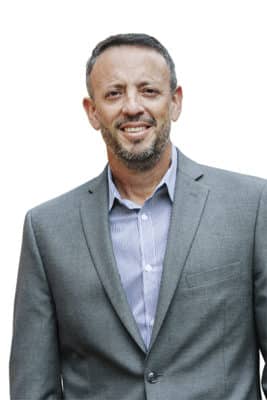
for Canada & Latin America, Pfizer
Handling procurement for Canada and Latin America for Pfizer, a leading research-based pharmaceutical company, means juggling many responsibilities and managing a team spread out across the continent. Over the years, Juan Carlos Perez, senior director of procurement for Canada and Latin America, has perfected his leadership style into something he describes as being both versatile and influential.
“I am able to influence my team by asking them to be active participants in decisions or support initiatives where we are able to make an impact,” Perez says. As for versatility, there are so many things to focus on, but not all of them matter equally. “In being versatile, you differentiate between them and focus attention on what matters most,” he says.
Perez says it helps that he has had the privilege of working with smart colleagues and outstanding leaders who have shown him different ways to discover his own leadership style.
Working with a team that is spread out across different countries has also forced Perez to make sure they continue working as a team instead of breaking down into silos.
“One of the key aspects is keeping good one-on-one contact with a relevant agenda, plus the opportunity to add rigor to online team sessions every other week, using video tools to complement our virtual presence,” Perez says. “I also maintain skip-level meetings with some members of the larger regional teams to eliminate communication barriers created by structured reporting lines.”
Beyond that, Perez sees his role as investing time into understanding what his team’s strengths and limitations are, both at the individual and collective level. He also considers what can be done to develop future capabilities so he can determine where they need to invest in training or create opportunities that are relevant for them to get to the next level in partnering with stakeholders.
The versatile aspect of his leadership comes in handy here, because one solution will never fit all problems. “We try to balance our efforts through some formal training,” he says. “But the core of our development model is based on intraregional development opportunities in which we invest time where specific talents are created, or reinforced, that are in line with the colleague’s aspirations.”
Knowing the strengths and weaknesses of his team members helps Perez keep the team from breaking down into silos. When he knows their capabilities, he can push them to participate in both regional and global initiatives. Once team members have worked on certain subject matter, they can expect Perez to come back to them later to ask them to participate in—or even lead—specific initiatives because they’ve had experience with that category or industry. It gives Perez’s team members a chance to get out of their daily routines and see the bigger picture of what Pfizer is working toward.
Moving his team members around to where they’ll be happiest and most productive is also part of Perez’s initiative to help his team members advance in their careers. The natural turnover in certain countries creates open positions, and while that position should filled as quickly as possible, that opening to could create an opportunity for someone else in Pfizer, at least on an interim basis. “And if that person is on our team, that creates a chain reaction,” Perez says. “So rather than asking for an additional budget for training or development, we use our own budget to self-fund those development opportunities.”
As a result, Perez’s team might actually prefer to have a position open for two or three months so they can create an opportunity to fill a need, advance a talent, or create a transitional breach to bring more people around.
“Of the people who report directly to me, I doubt any of them are doing today what they were doing three years ago,” Perez says. “They either have increased responsibilities or had a change in their professional tracks. They’re still in procurement, but if they were managing a country or group of countries, they could be managing a category for the region now. So that’s what you create when you work in that portal.”
That said, it’s not as if Perez will endorse someone just because they’re on his team. “Pfizer is a company with rich cultural traits, and as part of that culture, each colleague understands that professional development starts in oneself,” Perez says. “My role as a leader is to understand my team members’ professional aspirations, match them to the needs of the company, and create opportunities where both can be met.”

